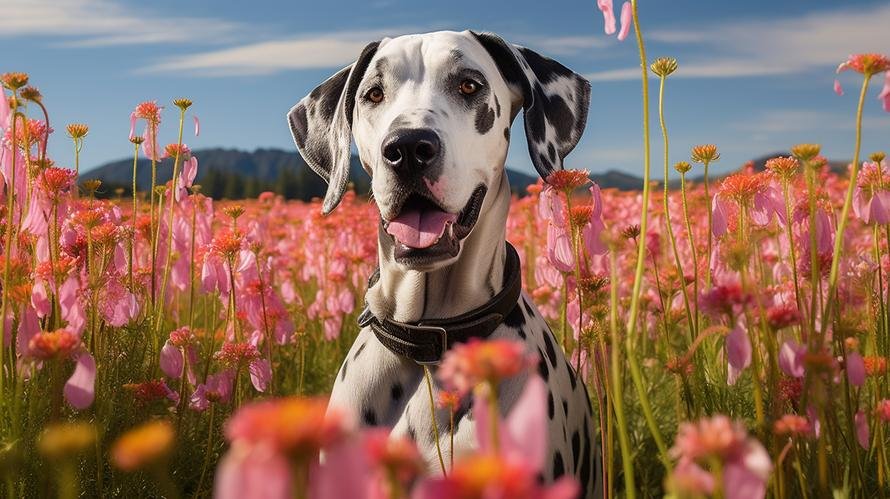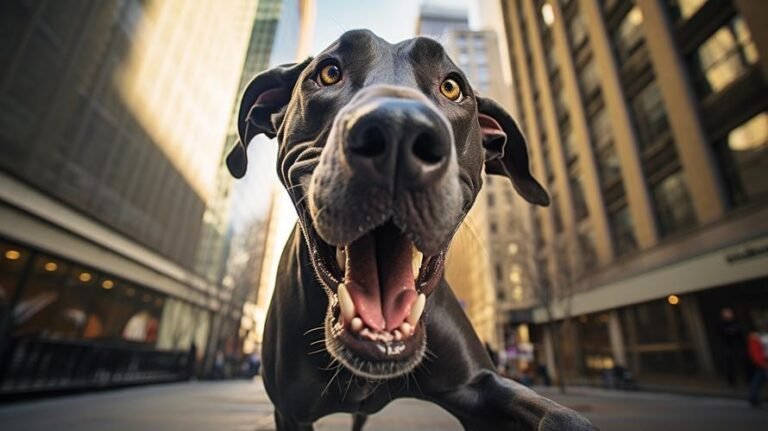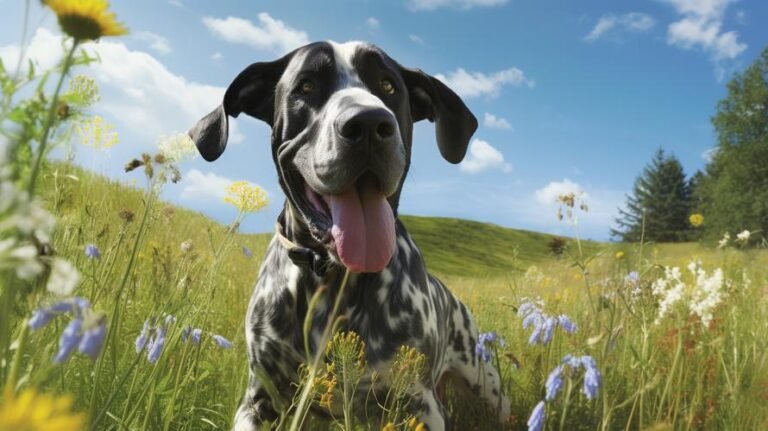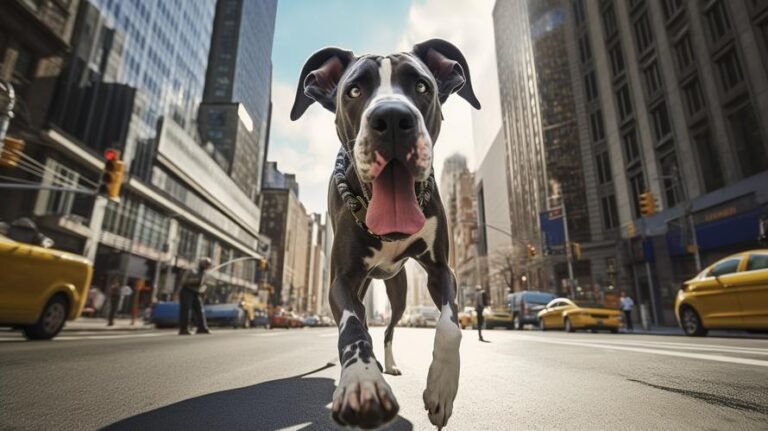Imagine this scenario: The sun is at its peak, birds are chirping their heart out, and the park is filled with the sound of laughing children and bustling people. Amidst all this, there lies a majestic creature on the grass – a Great Dane. It is not jumping around or barking at the chaos around it, instead it sits graciously, occasionally lifting its large, gentle eyes to observe the surroundings. You can’t help but be taken in by the calm demeanor of this dog which is so contradictory to its intimidating size. This imagery is not fictional, but something that you witness rather frequently from Great Dane owners.
The Great Dane, also known as Germany’s “national dog,” carries the aura of elegance, nobility, and gentility. It almost appears as a majestic statue, one that lacks the animation of dogs its size, but carries a sense of calmness that’s infectious. Although Great Danes have an imposing size, one of the tallest dog breeds worldwide, they’re often referred to as “gentle giants” in the canine realm.
As the title might have given away, in this article we’ll explore if Great Danes are indeed as calm as they seem. Or is it simply a trait we as dog lovers have assigned to them due to their slow, lumbering walk and usually quiet demeanor?
Great Danes: The Gentle Giants
The conversation around a Great Dane’s calmness indeed gets its fuel from their observable behavioural patterns in everyday life. For starters, they are not excessively energetic dogs. Unlike other breeds, they don’t require constant physical stimulation or playtime. A few intense play sessions, regular walks and mental engagement are sufficient to keep them happy.
Moreover, they are known to be immensely amicable animals, their size and stern expression often concealing a dog that is pretty much a large, lovable softy, which prods us away from the perception of them as hyperactive dogs. Every dog has a unique personality, but most Great Danes tend to be friendly rather than aggressive, docile rather than hyperactive.
A Testimony to their Calmness: The Many Roles they Play
Great Danes are also trusted therapy dogs who bring comfort and support to those struggling with various disabilities and conditions. The ADA (Americans with Disabilities Act) lists them among the popular breeds for providing emotional support and stability. This wouldn’t have been possible if they weren’t inherently calm and composed creatures capable of offering tranquillity and assurance to their human counterparts.
Moreover, Great Danes are often trained as service dogs, guiding visually impaired individuals or performing tasks for those with mobility issues. These roles need dogs to be focused, patient, and above all, calm.
Their Calmness is Subjective
We’ve established that Great Danes are generally calm dogs. But is it a universal trait? In reality, just as with humans, each dog exhibits a different personality reflecting an array of emotions and behaviours. Great Danes are no exception. While their general demeanour might lean towards tranquility, the individual personalities of these dogs vary.
For instance, while some Great Danes are just about the most relaxed dogs you’ll ever meet, others can be rather anxious, particularly if not properly socialized during their early developmental stages. Some may also display high energy levels and be incredibly playful.
Training and Environment Matter
The temperament of a Great Dane, like any other breed, is also profoundly influenced by its environment and upbringing. Training these dogs to display calm behaviour requires consistent effort, patience, and gentle guidance. Without proper training, these dogs can become destructive, stemming from boredom or neglected energy levels.
Additionally, Great Danes are highly susceptible to changes in their environment. If placed in a chaotic or tense atmosphere, they can mirror the same energy, thereby appearing less calm.
So, Are Great Danes Calm Dogs?
In conclusion, while Great Danes usually display calm, dignified demeanour aligning with their “Gentle Giant” moniker, they are personalities of their own and react accordingly. The training and environment they are exposed to can largely mould their behaviour. Thus, as much as the breed predisposes its temperament characteristics, the upbringing plays a significant role in shaping whether a Great Dane will be a calm dog or not.
So, if your heart is set on bringing a Great Dane into your life, remember that nurture strengthens nature. Provide them a balanced diet, regular exercise, a nurturing environment and loads of love. Respect their individuality, understand their needs, and you’ll have a calm, loyal companion. After all, a happy dog is indeed a calm dog.



